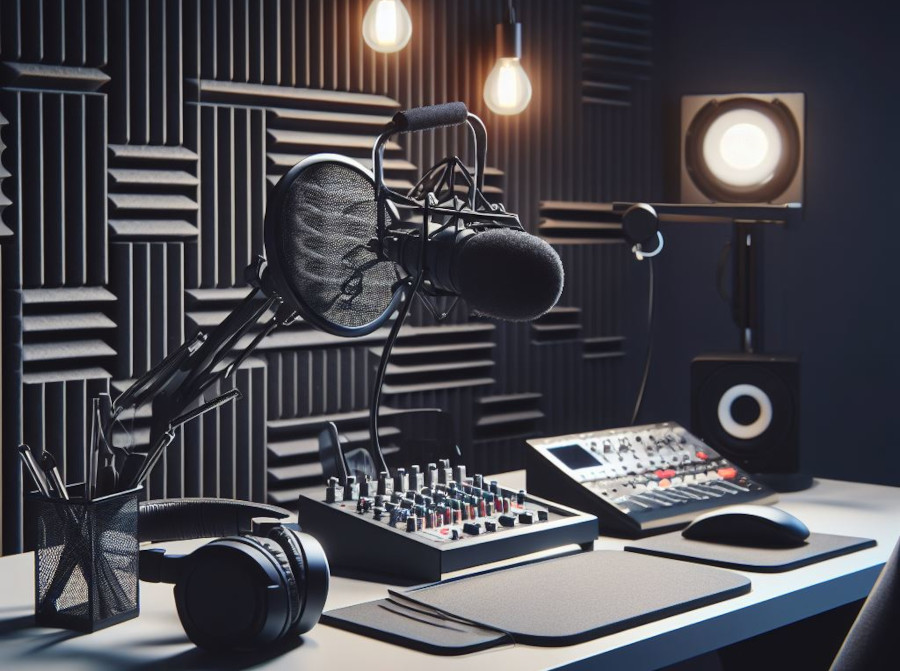What is podcasting?
Podcasting is a form of digital media that involves the creation and distribution of audio or video content in a series of episodes, often centered around a particular topic or theme. Podcasts are typically made available for download or streaming over the internet and can be accessed through various platforms, including websites, podcast apps, and streaming services. Here are some key characteristics and elements of podcasting:
- Audio or Video Content: Podcasts can consist of audio content, which is more common, or video content. They are often presented in an episodic format, with new episodes released on a regular schedule.
- Subscription Model: Podcasts are typically distributed via an RSS (Really Simple Syndication) feed, which allows listeners to subscribe to the podcast. Subscribers automatically receive new episodes when they are released.
- Variety of Topics: Podcasts cover a wide range of topics, from news and storytelling to education, entertainment, self-help, technology, and much more. There are podcasts for virtually every interest and niche.
- Independently Produced: Podcasts are often produced independently by individuals or small teams. This makes podcasting an accessible platform for creators to share their ideas and expertise.
- Accessibility: Podcasts are easily accessible through various platforms and apps, including Apple Podcasts, Spotify, Google Podcasts, and many more. Most podcasts are available for free, although some may offer premium content or ad-supported versions.
- On-Demand Listening: One of the key features of podcasts is that listeners can choose when and where to listen. They can download episodes for offline listening or stream them over the internet.
- Engagement: Podcasts often encourage engagement and interactivity with their audience through comments, reviews, social media discussions, and even listener questions and feedback.
- Monetization: Creators can monetise their podcasts through various means, including sponsorships and advertising, listener donations, merchandise sales, premium content, and affiliate marketing.
Podcasting has become a popular medium for both creators and listeners because it offers a flexible and on-demand way to consume content. It has also provided a platform for voices and perspectives that might not have been as easily heard through traditional media channels. As a result, podcasting has grown into a diverse and vibrant ecosystem with content for every taste and interest.
Starting podcasting
Starting a career in podcasting can be an exciting and rewarding journey. Here are the steps to get you started:
-
Identify Your Niche and Audience:
- Choose a specific topic or niche that you are passionate about and knowledgeable in. Consider your target audience and what kind of content would interest them.
-
Research and Planning:
- Study existing podcasts in your niche to understand what works and what doesn’t. Analyse the competition and look for opportunities to stand out.
- Plan your podcast format, episode structure, and content ideas. Decide on the length and frequency of your episodes.
-
Create a Unique Brand and Name:
- Develop a distinct brand and name for your podcast that reflects your content and appeals to your target audience.
-
Acquire Equipment:
- Invest in the necessary podcasting equipment, including a good-quality microphone, headphones, audio interface, and recording/editing software.
-
Recording and Editing:
- Record your episodes in a quiet, controlled environment to ensure high audio quality.
- Edit your episodes to remove any background noise, mistakes, or dead air. You can use software like Audacity or Adobe Audition for this.
-
Cover Art and Music:
- Design eye-catching cover art for your podcast. You may need to hire a graphic designer or use tools like Canva.
- Choose suitable music or sound effects to enhance your podcast. Ensure you have the necessary rights to use them.
-
Host and Publishing Platform:
- Choose a reliable podcast hosting platform to store and distribute your episodes. Popular options include Libsyn, Podbean, and Anchor.
- Set up an RSS feed for your podcast, which will be used by podcast directories to distribute your content.
-
Recording and Production Schedule:
- Stick to a consistent recording and production schedule. This helps build a dedicated audience.
-
Promotion and Marketing:
- Create a website and social media accounts for your podcast.
- Promote your episodes on various platforms, such as social media, forums, and your personal network.
- Consider collaborations with other podcasters in your niche.
- Use SEO techniques to improve your podcast’s discoverability.
-
Engage with Your Audience:
- Encourage feedback, comments, and reviews from your listeners. Respond to their questions and engage with them on social media.
-
Monetisation:
- Explore ways to monetise your podcast, such as sponsorships, affiliate marketing, merchandise sales, or listener donations.
-
Continuous Improvement:
- Pay attention to feedback and analytics to improve your content and grow your audience. Adapt and evolve as needed.
-
Legal Considerations:
- Be aware of copyright laws and permissions when using music, clips, or other content in your podcast. Ensure you have the necessary licenses or permissions.
-
Consistency and Patience:
- Building a successful podcasting career takes time. Be patient and stay consistent in your efforts.
-
Networking:
- Attend podcasting conferences, connect with other podcasters, and join podcasting communities to learn from others and grow your network.
Starting a career in podcasting requires dedication and a commitment to creating high-quality content. Over time, as your audience grows and you gain experience, you can explore more opportunities to expand and monetize your podcasting venture.







